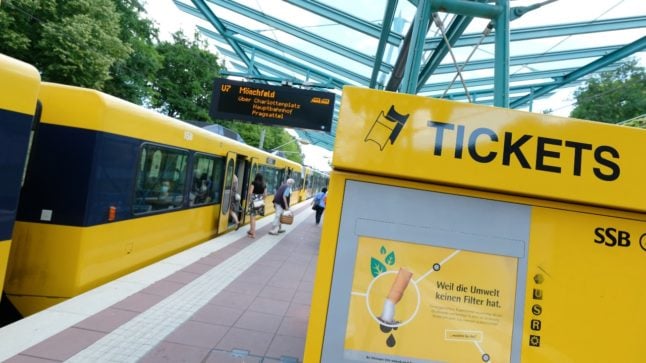Following several delays, Germany is prepping to launch its €49 Deutschlandticket in a few weeks, which will allow travel on public transport around the country for its low monthly subscription cost, including buses, U-Bahn, trams, and regional trains. Long-distance trains will remain excluded.
Tickets went on sale on April 3rd around the country, with people in some places – including Berlin – having been able to get it a little earlier.
State-run Deutsche Bahn reported that traffic to its website on the first day of sales was double what it normally is, and that 250,000 people have bought the ticket through DB alone. That doesn’t count the number of people who may have already purchased it through their local and regional transport providers – such as Berlin’s BVG or Munich’s MVV.
With demand surging, DB expects that around 17 million people – around a fifth of the country’s population – to end up using the Deutschlandticket. Of those, it expects that 11 million people will switch the existing subscription they have with their local or regional transport provider to the €49 Deutschlandticket.
But around six million people, according to DB projections, with be people who have never had a public transport subscription in Germany before, increasing the number of people using it in the country overall.
The actual number of people using public transport in Germany would still be higher than this, as some people will not switch their subscriptions, or may be entitled to a cheaper offer. For example, Berlin’s current draft coalition agreement between the Social Democrats and Christian Democrats envisions keeping the city’s current €29 monthly ticket offer for travel within the city limits, meaning many of the capital’s residents may opt for this ticket rather than the Deutschlandticket.
READ ALSO: €49 ticket goes on sale across Germany: What you need to know



 Please whitelist us to continue reading.
Please whitelist us to continue reading.
Member comments